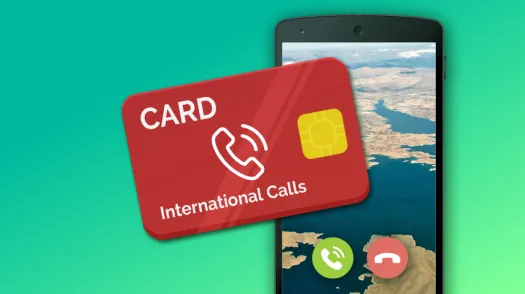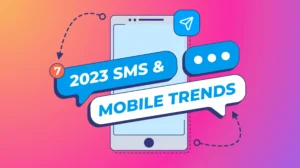Introduction International Calling Cards
International Calling Cards have long been used by international travelers to keep costs down when calling back home. However, there are other options available for making calls on your phone. If you’ve ever wondered if calling cards still make sense in our increasingly mobile world and where the best place is to buy them from, then read on!
Do wireless providers offer international plans?
Wireless providers often offer international plans, which include calls and text messages. These plans are usually more expensive than calling cards because they include data or have no additional fees.
However, they’re often more convenient than a calling card if you travel frequently and want to keep your phone number. Wireless providers also offer roaming options that can be cheaper than buying a new SIM card every time you enter another country (though these may not always be available).
If you choose to use an international plan with your cell phone provider, make sure the plan is suitable for all countries in which you will be traveling so that there are no surprises when it’s time to pay the bill.
How do I keep my existing number?
You may be able to keep your number if you are using a prepaid plan from your phone company. However, if you’re using a prepaid plan from another provider, such as Google Voice or Skype, it may be more difficult to port your existing number.
However, there is a possibility that some of these services can give you an option to port over your existing number and some will not even ask for it.
Once again, it all depends on the kind of service provider and its policies regarding customer services and personal information management policies.
If it’s possible then go ahead but do remember there are no guarantees in this regard so don’t get disappointed. when they tell us otherwise because many times even after applying all the above-mentioned steps nothing happens still which leaves us. with no choice but to move on forward without our beloved numbers anymore.
Do the cards work on portables (e.g., cell phones, smartphones)?
The short answer is yes. The cards work on any phone, including cell phones and smartphones.
The long answer: if you’re talking about a portable phone, like a cell phone or smartphone, then yes, these calling cards still work well. They are also compatible with most other types of landlines as well. You can use them at home or in the office to call friends and family overseas without worrying about high rates or hidden fees.
Where can I buy calling cards?
You can get calling cards in several ways, including:
- Online. This is the most convenient way to buy a calling card, but it does cost more than buying one in person at a local store or kiosk. Most websites will have their rates listed plainly on the page so you can compare prices before purchasing.
- At a local store like Walmart or 7-Eleven. These stores typically have everything from stamps to batteries and even prepaid international calling cards that won’t break your budget.
- At an airport kiosk near check-in areas (if you’re traveling internationally). The best part about buying one here is that many airports offer free Wi-Fi for passengers; if yours doesn’t offer this service yet, then consider getting your card before leaving home so you don’t end up paying too much for data usage once overseas.
What are some popular types of calling cards?
- Prepaid
Prepaid calling cards are the simplest type of card. You buy them at a store or online, and once you’ve paid for them, they’re activated and ready to use right away. Postpaid calling cards can be complicated, depending on how the company works—so if you’re looking for a straightforward option that doesn’t require much planning ahead of time, prepaid is your best bet.
- Reloadable
Many calling card companies offer reloadable options: when your balance runs low on your phone call package (say $10), you can add more money to it by putting funds directly on the card from an ATM or through an online process (like PayPal). Rechargeable cards come with this functionality built in so that every time your balance gets too low, it’ll automatically go back up again—but there’s always the risk that something might happen during this process and all those calls will go straight to voicemail!
- Reloadable/Rechargeable
Some providers offer both reloading capabilities as well as recharge ability within their same product line; if one of these options is available then look no further because they’ve done all the hard work themselves!
How do I know which card is best for my needs?
There are a few things to consider before choosing a calling card. The first thing is how easy it is to use. Cards that have complicated activation processes or require you to enter your PIN every time you call can be annoying. The second thing to look at is the rate.
how much does it cost per minute? How does this compare with other cards. There’s nothing worse than spending hours researching calling cards only to find out that the best one was right under your nose all along.
Once you’ve found a card with good rates and an easy-to-use interface, there are other factors that may come into play when making your final decision.
If you’re going abroad often, make sure the card includes features like no connection fee, free long-distance calls within certain zones (usually North American countries). and free international roaming in case connectivity isn’t available where you need it most.
What are the benefits of a prepaid calling card over other options?
The benefits of a prepaid calling card over other options are numerous. They are convenient, easy-to-use, and available in many different denominations. In addition, they can be used home or abroad. The purchase can even be made online or through an app on your smartphone.
When you use a prepaid calling card to make international calls, you don’t have to worry about incurring roaming charges for using data. abroad since the call isn’t placed through a wireless network but rather through the landline operator’s infrastructure (which is why it’s sometimes called “landline” calling).
Are there any hidden charges associated with calling cards?
Calling cards are typically billed on a per-minute basis, with the cost of each minute clearly spelled out. A typical calling card can be used to call anywhere in the world and will cost around $0.02 per minute. However, if you don’t have a landline or cell phone service that can receive international calls, then you’ll need to purchase an internet-based calling plan as well.
These services generally cost about $10 per month and give users access to low-cost international rates for making calls over their computers or mobile devices; however, they do not offer any free minutes like traditional calling cards do (and require you to use your regular phone number).
With all this being said, there really aren’t any hidden fees associated with using a calling card: what you see is what you get! Any fees are clearly listed on the card itself so there’s no confusion down the line when it comes time for billing statements at home
Can I use a calling card from outside my region or country?
Yes, you can use a calling card from outside your region or country. However, if you are traveling internationally and want to buy a calling card, it’s best to purchase one in the country you are visiting.
If you’re not going to be in that country for long but still need a phone card, there are other options available:
- If the operator accepts international calls at all, they may charge an additional fee per minute for doing so. This is because they have to pay expensive interconnect fees when connecting the call through their network (which is often owned by another company).
- The fee will vary depending on which companies are involved and how far away from each other they are located. this makes it impossible for us or anyone else who doesn’t work for them know exactly how much extra money will be added onto every minute spent using an international calling card. like ours instead of ordinary ones such as Vodafone Mobile Broadband SIMs or prepaid mobile numbers without any special features associated with them whatsoever.
- If there aren’t any restrictions on international calling cards then expect $$%.
How can I reduce the cost of international calls when traveling abroad with a portable phone (cell phone, smartphone)?
If you’re traveling abroad with a portable phone (cell phone, smartphone), you may want to consider the following options for reducing the cost of international calls.
- Use a calling card. Calling cards are prepaid cards that let you make international calls from your portable phone at discounted rates. They can be bought from kiosks or convenience stores and can be used anywhere in the country where they were purchased.
- Use a prepaid plan. If you have an unlocked portable wireless device, such as a smartphone or tablet computer, then this option may work for you; otherwise it’s probably not worth it.
- However, if it does work for you then purchasing one will allow access to any network within range of your current location without having to purchase an additional SIM card . when traveling abroad because prepaid plans are usually available through any local mobile carrier (for example AT&T Wireless offers these).
- Buy a local SIM card at home before leaving on vacation so that when arriving in another country all that needs doing is popping out previous SIM card. and inserting new one into phone or tablet device and voila. You should now have access wherever there is coverage provided by said network operator which means not only saving money. but also being able to contact friends back home while also keeping them updated on how things are going abroad too.
The answer is that it depends on your specific circumstances, but most likely prepayment plans will be cheaper for you.
The answer is that it depends on your specific circumstances, but most likely prepayment plans will be cheaper for you.
The answer depends on your specific circumstances, but most likely prepayment plans will be cheaper for you.
The answer is that it depends on your specific circumstances, but most likely prepayment plans will be cheaper for you.
Conclusion
Calling cards may be a relic of the past in some ways, but they are still useful for many people. If you plan to travel abroad and need to call home with a portable phone (cell phone, smartphone), then a calling card is probably your best option.
The prepaid way works especially well if you don’t want anyone else knowing what you’re spending on international calls or if there are any hidden charges associated with using one of these cards.



